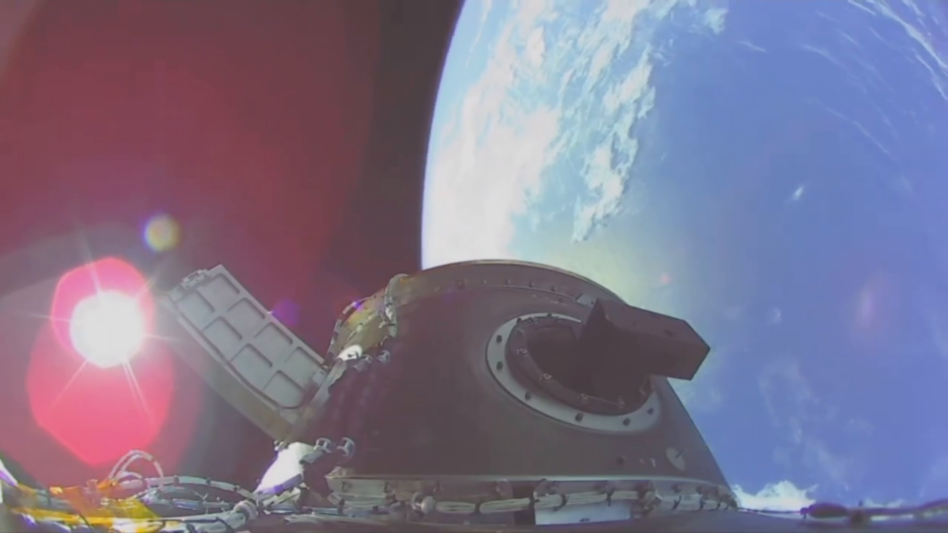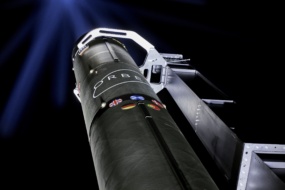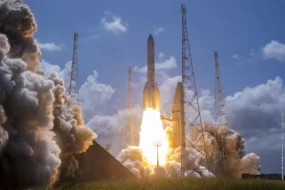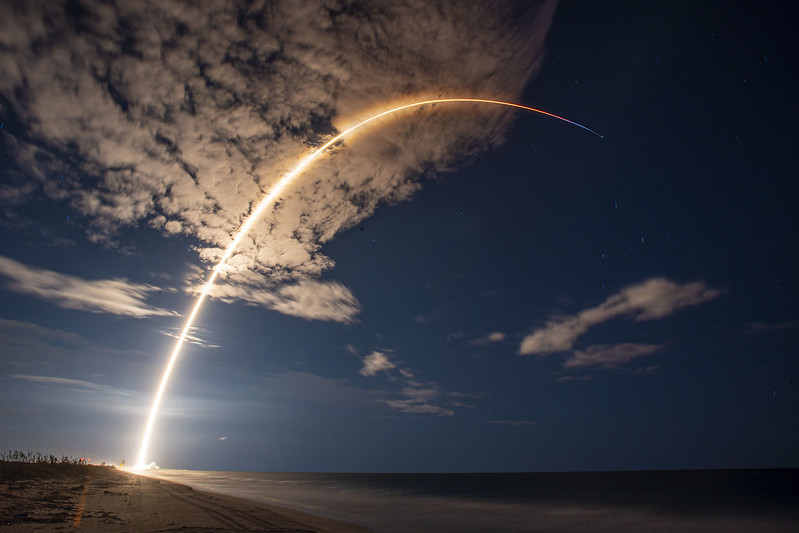Firefly Aerospace successfully reached orbit early in the morning on Saturday, October 1. The Cedar Park, TX company’s Alpha FLT002 mission lifted off from Vandenberg’s Space Launch Complex 2 shortly after midnight Pacific.
Stage separation occurred roughly 2.5 minutes after lift off, and Alpha reached orbit shortly before T+8 minutes. Firefly deemed the orbital journey a “100% mission success,” at 4:45am ET (1:45am Pacific).
CEO Bill Weber, who recently assumed the role, said that Firefly “deployed our customer payloads at exactly the spot we intended–on only our second attempt…ever.” The Alpha rocket carried three payloads: a Teachers in Space cubesat dubbed “Serenity,” NASA’s TechEdSat-15 cubesat, and a picosat deployer with six spacecraft operated by the Libre Space Foundation.
Alpha’s advertised specs: The expendable, two-stage rocket uses pump-fed, regeneratively cooled engines that run on LOx/RP. Alpha can carry 1,170 kg to LEO. A dedicated commercial launch costs $15M. Firefly also expects to launch Alpha from Cape Canaveral.
A small club…Firefly joins a small, prestigious club of privately funded space players that have successfully reached orbit. Relativity and ABL, too, may soon be knocking at the door…
And a first…At 29.5 m tall and 1.8 m wide, Alpha is the largest all-carbon fiber rocket ever built, as noted by Teslarati.
What next? Firefly has plenty in the works. The Space Force just selected Firefly for a “Rapid Space” tactically responsive launch, and the company is presumably planning for multiple missions in 2023. Finally, Firefly also has a CLPS contract from NASA to deliver its Blue Ghost lander to the lunar surface.





